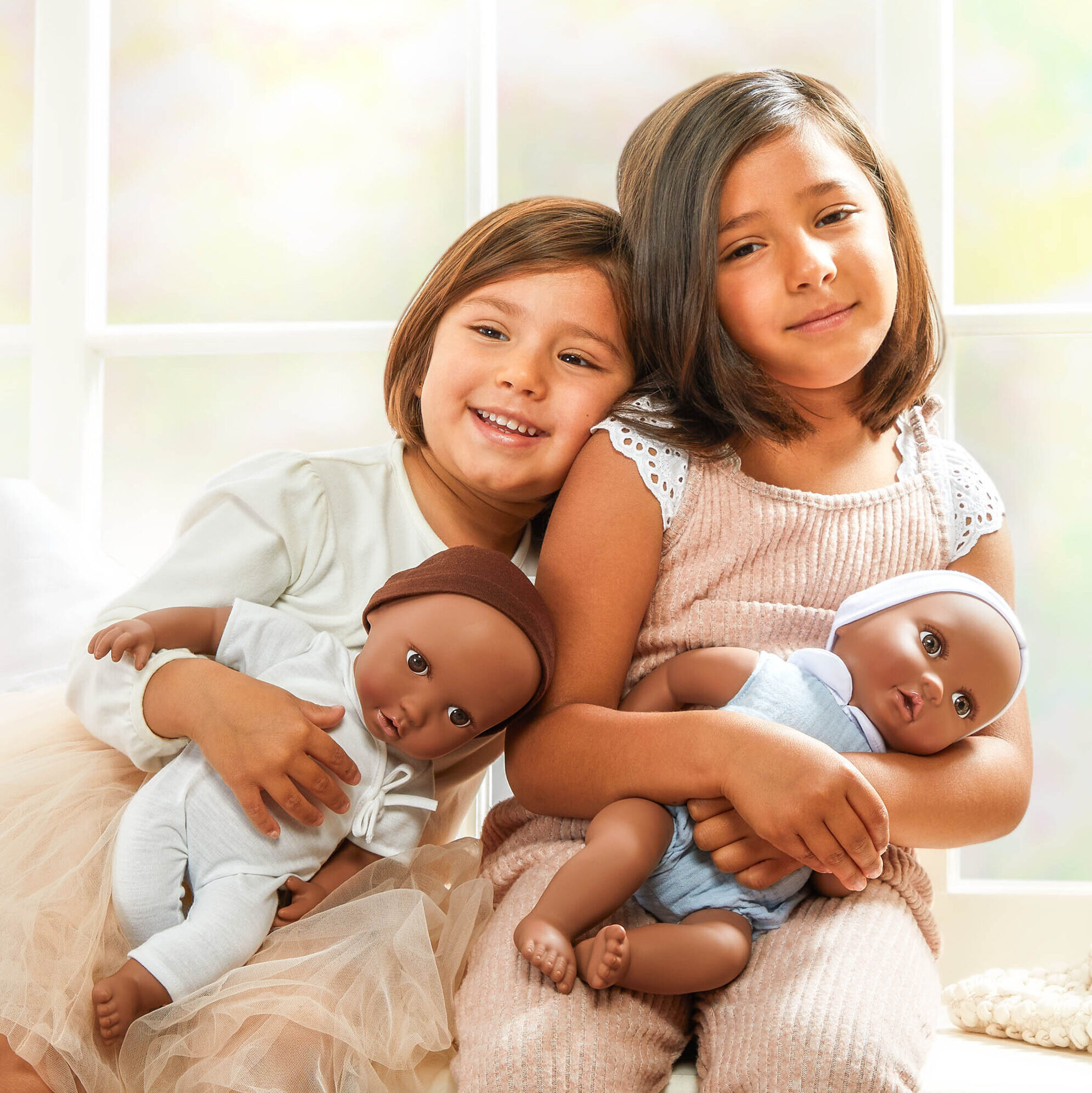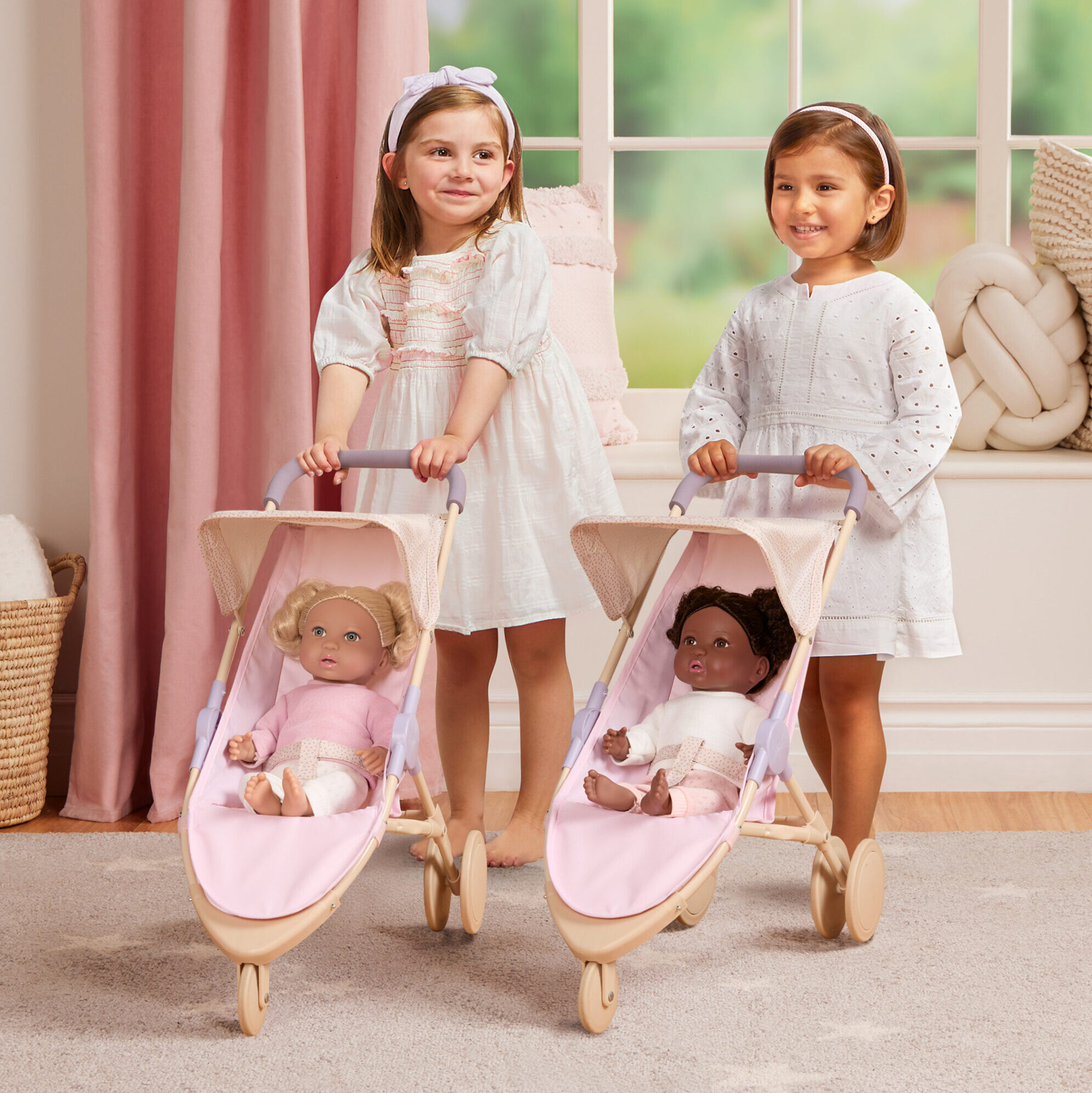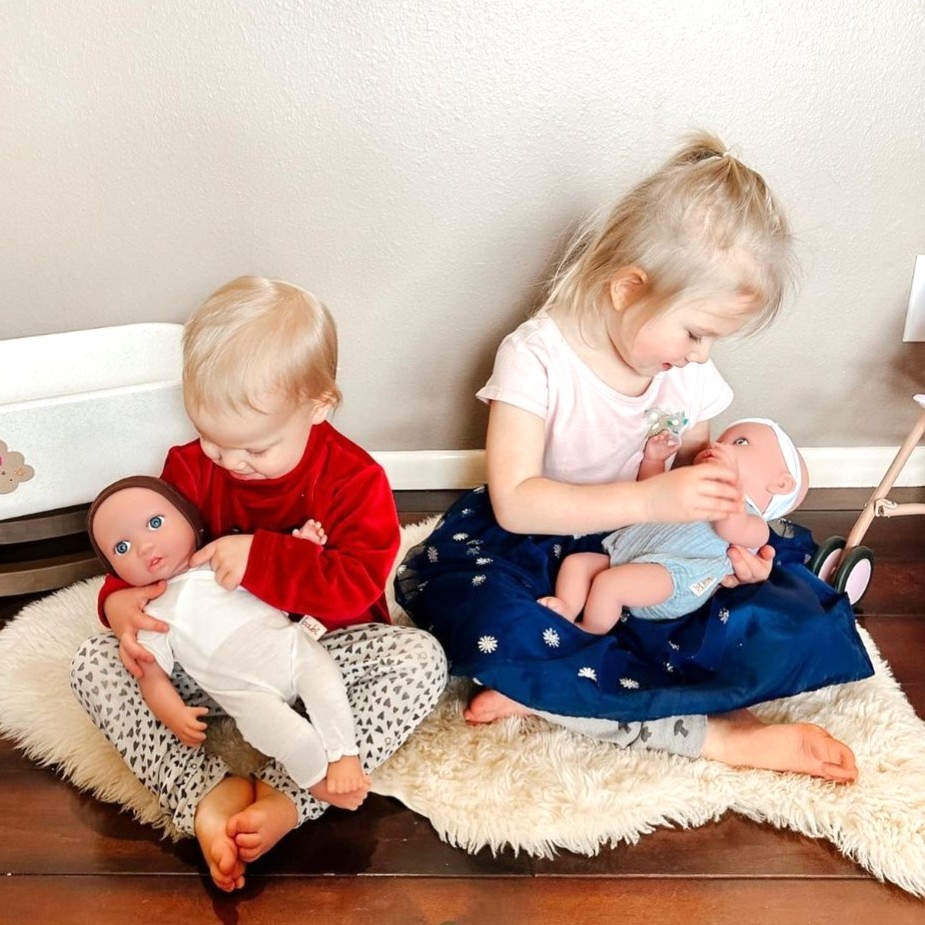
How Doll Play Builds Social Skills & Friendships
Years down the road, your little one will be sitting with friends reminiscing about their favorite dolls, toys and characters from childhood. While it’s difficult to imagine your child getting nostalgic over toys you now see in their arms every day, doll play builds social skills that will stick with them and build the foundation for friendships and relationships that could last their entire lives.
So much of who your child grows up to be is determined by their friends and who they will surround themselves with. Making friends and developing the skills they need to foster lifelong friendships starts right now when your child is only a few years old.
Right now, you are your child’s best friend. In a few years, their school and activity-related friendships will eclipse their home-life friendships, and the hope is that they spend their time with kind, lovable, and motivating friends. Here are some ways baby doll play builds social skills and helps foster positive friendships.
Doll Play Builds Social Skills & Develops Preferences
One of the best ways to make friends is to bond over shared interests. When it’s your child’s first day of daycare or school, they’ll be drawn to kids who like the same toys and activities they do. “I have that doll, too,” goes a long way. That can be the simple line that sparks a friendship between your child and their future best friend.
It’s around toddlerdom that your child first starts to show real preferences. They might pick what foods they want to eat (and nothing else), what clothes to wear (even if they wore them yesterday), and what toys they want (whether you agree or not). As a parent, you can do your best to expose them to things you’ll both enjoy. For example, kids will love LullaBaby’s cuddly soft dolls and realistic toys, and parents will appreciate the neutral blush tones and minimalist design. Sadly, what really clicks for your child is out of your control. Will they love dolls, trucks, coloring, ballet, soccer, music, or all of the above? Who knows? But whatever they fall in love with will carve out a path toward friendships and memories they’ll cherish for years.
Doll Play Builds Social Skills & Lets Kids Learn to Share
For several years, at the start of your child’s life, they won’t know how to play with others. You can put as many one-year-olds together in a room with toys, but they don’t have the skills or capacity to play together yet. As your child grows, so does their imagination. They’ll want companions during play, and keeping up with all the inventive storylines as a parent is not easy. If you give your child opportunities to play with others, either at daycare, school, or with cousins or friends during playdates, they’ll slowly learn how to play cooperatively and how to share toys, take turns, and practice patience and understanding. None of this is easy (we have a full blog post detailing some ways you can practice sharing), but these opportunities and experiences are fundamental to their growth and development.
Pretend play with baby dolls is a great way to start.
Doll Play Builds Social Skills & Strengthens Communication
The older your child is, the more effectively they’ll communicate their ideas and wants. Playtime is tricky when they struggle to find the right word to express what they want to do or create. Add in a second or third child with their unique way of expressing themselves, and playtime can become chaotic.
Luckily, baby doll play transcends verbal communication. Hand a very young child a spoon and an empty bowl, and they’ll scoop up air and bring it to their baby doll’s mouth. No explanation needed. If your child is lucky enough to have a baby doll nursery with multiple baby dolls, when they have siblings or friends join their play space, the pretend play patterns are instinctive.
That experience of nonverbal collaboration will create a bond between your child and their playmate. The next thing you know, those children play together more regularly. Flash forward a decade or two, and those early memories become so precious.
Make sure to take lots of pictures and keep all their favorites so that when the time comes to look back and talk about where it all started, you’ll have their favorite LullaBaby doll and a photo of them playing with it to tap into their nostalgia.
Next time you see your child and a friend engaged in doll play, remember that doll play builds social skills, and what they’re really doing is learning how to be a great friend.
For more wholesome LullaBaby content, sign up for our newsletter or follow us on Instagram.


